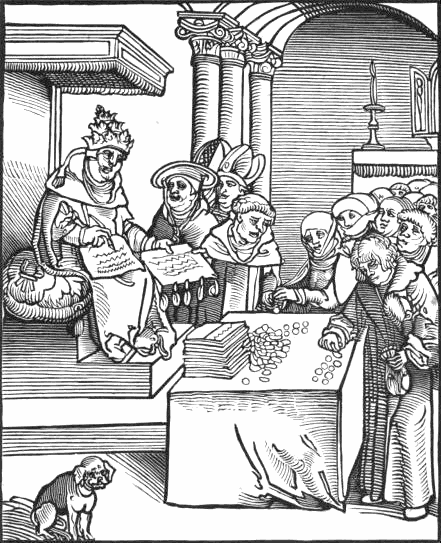
448 I wol have moneie, wolle, chese, and whete,
449 Al were it yeven of the povereste page,
450 Or of the povereste wydwe in a village,
451 Al sholde hir children sterve for famyne.
452 Nay, I wol drynke licour of the vyne
453 And have a joly wenche in every toun. (The Pardoner's Tale - The Canterbury Tales)
What kind of a man is this? How could people actually follow the practices that were consuming the Church during this time? Did they not realize that it was evil?
This leads me to ask the question, will people do anything or follow anything as long as it is pleasant to the naked eye? Will they simply brush over the fine print, the grimy truth, and close their eyes to the obvious, just so that they can live the way that most pleases them? So are humans naturally evil, selfish, and corrupt? The history of Indulgences definitely supports this theory.
But humans can't be all that bad, look at all of the good we have done! When Haiti was in trouble, everyone gave money to help them out. When a child goes missing, family, neighbors, police men and so many others help to try to find him. We can do so much good, but it is only the bad that gets highlighted and remembered.
Which leads me back to another thought of mine. Literature only likes to depict the evil that goes on in the world! I haven't read one book that has told of a happy story and had a happy meaning throughout my time as a Literature student. It seems that only works that show the crudeness of human beings receive the deep analyzing and hype that is lacking in the reviews of the moral ones, if there are any.
Is happiness too cliche? Is it just boring and common? Personally, I love happiness; the happy ending, the happily ever after, the happy people, it gives me warm fuzzies inside and reminds me of the little marshmallows in hot
-chocolate. Why o
h why can't AP Literature have some of those books?


No comments:
Post a Comment